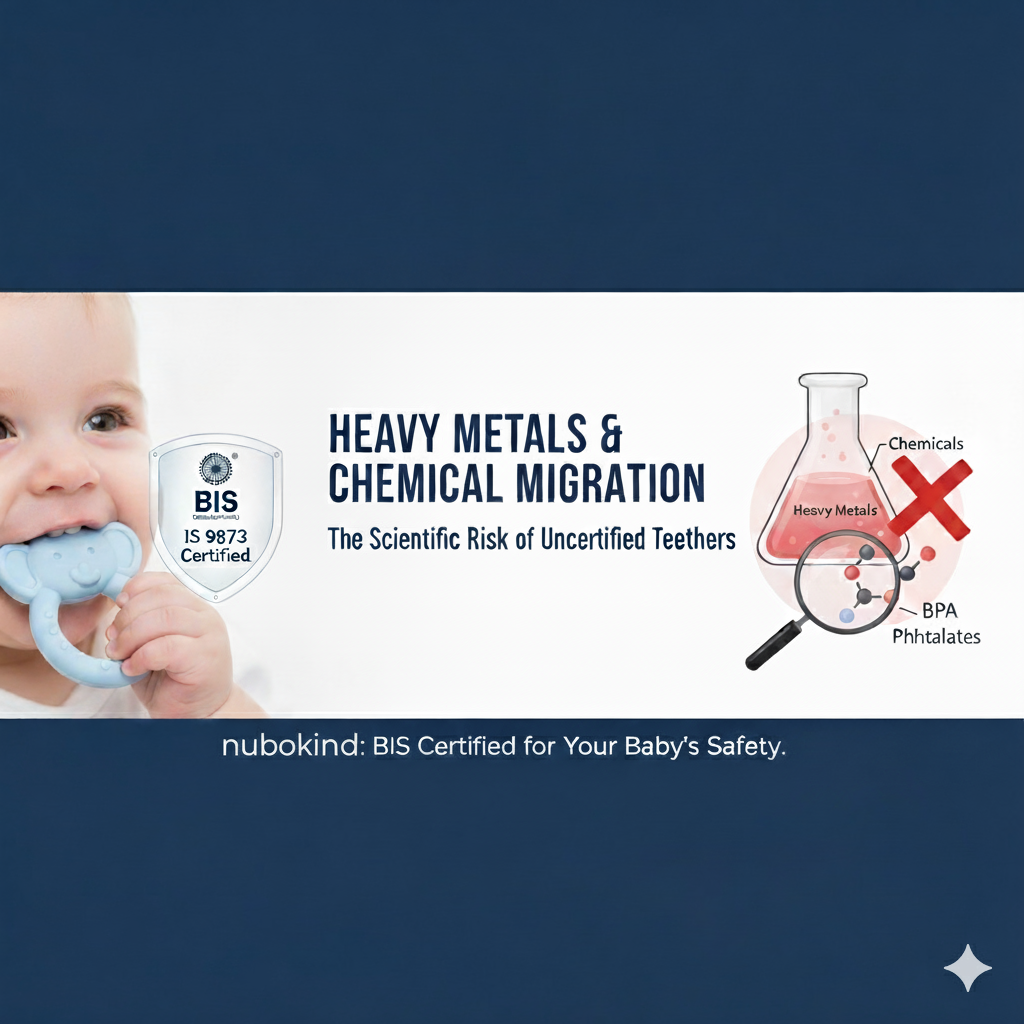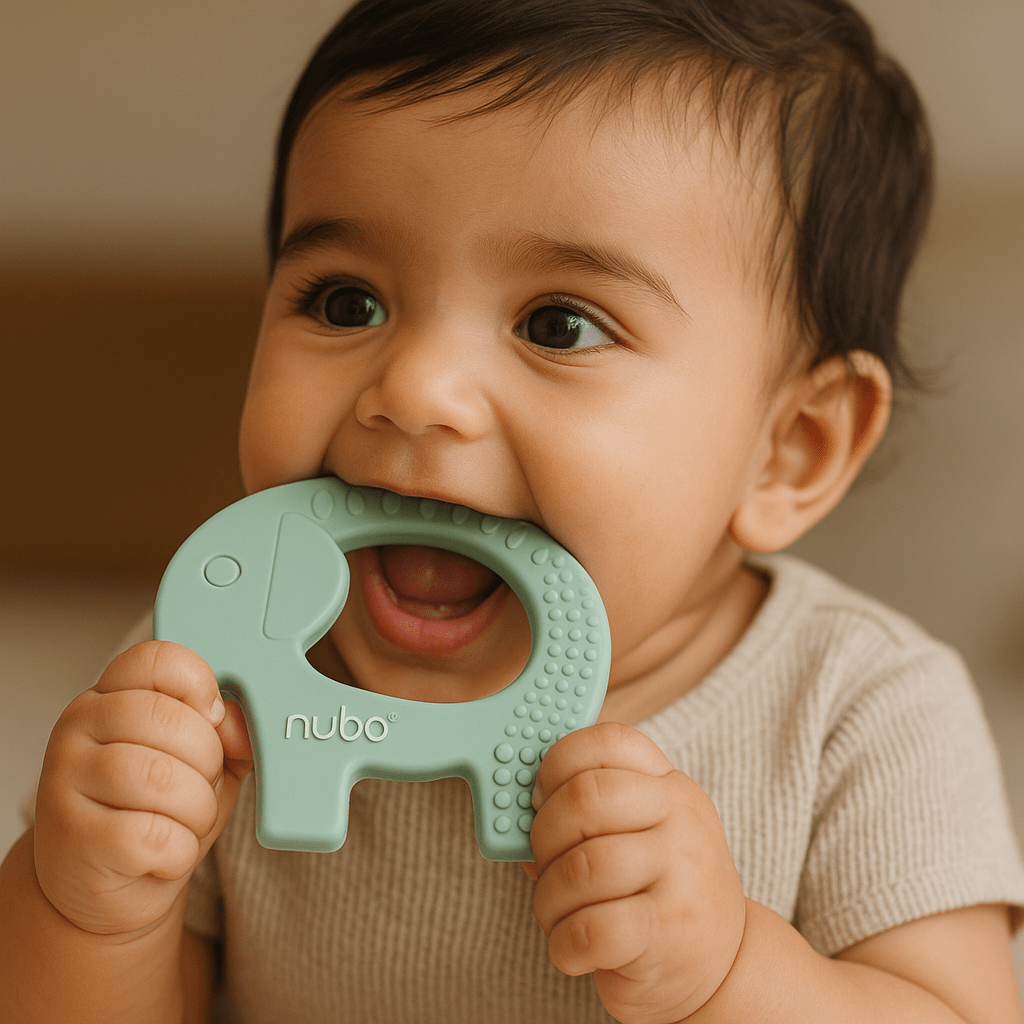What Pediatricians Say About Silicone Teethers: Safety, Development, and Soothing
Why Medical Experts Endorse Safe Chewing
When a parent seeks professional advice on teething, the guidance is often simple and consistent: provide safe, clean objects for chewing. Pediatricians and developmental specialists endorse high-quality silicone teethers not just as comfort tools, but as essential aids for a baby's oral motor development and emotional regulation.
The medical consensus is built on two core principles: Material Safety (non-toxicity) and Functional Design (supporting jaw and speech foundations).
1. Material Safety: The Non-Toxic Mandate
Pediatricians' first priority is material safety. They emphasize using products that pose zero risk of chemical exposure, which is why 100% food-grade silicone is frequently recommended over older or cheaper alternatives like soft plastics, which can contain harmful additives.
The Pediatrician’s Checklist for Teether Materials:
-
BPA and Phthalate-Free: Experts strongly caution against known endocrine disruptors like BPA and phthalates, which are used to soften cheap plastics. Food-grade silicone is naturally free of these chemicals, making it the preferred, safer choice.
-
Heavy Metal and Lead-Free: Any product a baby mouths must be certified against heavy metal contamination (often found in unverified dyes). Pediatric safety standards, such as the BIS certification met by nubokind , ensure that rigorous testing eliminates this risk.
-
Easy to Sanitize: Pediatric advice always stresses hygiene. Silicone is non-porous and highly heat-resistant, meaning it can be safely boiled or sterilized without degrading the material or leaching chemicals—a key requirement for maintaining a clean environment for a baby’s developing immune system.
2. Supporting Oral Motor Development
Beyond pain relief, chewing on a properly designed teether is a critical developmental activity that prepares the mouth, jaw, and tongue for future milestones.
How Chewing Builds Key Skills:
| Developmental Focus | Teether Function (Recommended by Experts) | Benefit for Baby |
| Jaw Strengthening | Providing firm, yet flexible resistance. | Builds strength in the masseter muscles (chewing muscles), which are crucial for later speech and feeding. |
| Sensory Awareness | Offering varied textures (smooth, bumpy, ridged). | Teaches the tongue and lips to differentiate sensations, supporting a smoother transition to varied solid foods. |
| Fine Motor Skills | Having an easy-to-grip, ergonomic shape. | Encourages hand-to-mouth coordination, improving dexterity and grasp—a foundational physical skill. |
Pediatric occupational therapists often recommend teethers with gentle textures, like those found on nubokind products, as they provide necessary oral sensory feedback without being overly stimulating or harsh on gums.
3. Emotional Regulation and Self-Soothing
Teething discomfort isn't just physical; it’s an emotional stressor. Pediatricians note that the repetitive, rhythmic motion of chewing helps babies regulate their nervous system.
-
Endorphin Release: Chewing activates pressure points in the jaw, which can trigger a mild release of endorphins—the body's natural calming hormones. This turns the teether into a safe self-soothing tool during periods of stress, fussiness, or separation anxiety.
-
The Power of Consistency: Having a consistent, trusted object (like a favorite teether) helps establish a routine during the unpredictable teething phase, offering the baby a sense of control and comfort.

The Pediatric Endorsement: What to Look For
To align your purchase with pediatric advice, experts recommend looking for a teether that meets these design standards:
-
One-Piece Construction: To eliminate the risk of small, detachable parts, which are the leading cause of choking hazards in infant products.
-
BIS or Equivalent Safety Certification: This is the documented proof that the product has passed mandatory mechanical, flammability, and chemical safety checks.
-
Appropriate Firmness (Soft, Not Hard): The material should be soft enough to cushion inflamed gums but firm enough to offer resistance for jaw exercise. Frozen, solid objects are often too hard and can damage developing gum tissue.
nubokind is proud to align with these standards, utilizing BIS-certified, 100% food-grade silicone with a minimalist, choke-proof design, giving parents confidence that their choice is backed by science and safety mandates.
Key Takeaways for Busy Parents
To quickly summarize what experts recommend:
-
✅ Choose Material Purity: Insist on 100% food-grade silicone that is guaranteed BPA and Phthalate-free.
-
✅ Look for Certified Proof: Only buy products with verifiable safety certifications, like the BIS mark.
-
✅ Support Development: Use teethers to help strengthen the jaw, which aids in future speech and feeding readiness.


